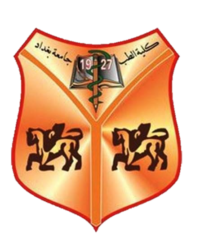The symposium was held under the auspices of the Deanship of the College and presented by the two teaching staff, Consultant Psychiatrist, Professor Dr. Mushtaq Talib Hashim, and Dr. Lubna Qais Naji, in Al-Kindi Hall at the College this morning, Tuesday, April 30th* The symposium, which was held within the activities of the Continuing Education Unit in cooperation with the Studies and Planning department, in its organization, aimed to raise awareness of the dangers of drug addiction and all psychotropic substances as one of the most dangerous and widespread social problems. The topics of the symposium included defining drugs as chemical substances that affect the central nervous system and the mental state, and categorizing them based on their impact on the physical nature of the individual, in addition to their health risks to memory and learning ability, the risk of heart attacks, and circulatory and respiratory system problems The symposium also discussed psychological risks, represented by symptoms of anxiety, inferiority, and psychosis, along with changes in behavior such as aggression and withdrawal, in addition to the devastating social effects, such as the deterioration of personal, professional, and educational relationships, such as loss of effectiveness at work and study. The symposium dealt with addiction treatment, which begins with evaluation and conducting psychological examinations, including toxicology examinations, with the aim of determining and diagnosing the existence of the addiction problem, and then providing medical treatment that includes a number of treatments that depend on the type of narcotic substance to help maintain psychological and physical stability in the acute withdrawal phase The importance of cognitive-behavioral therapy for understanding drug-related thoughts and developing strategies for dealing with desires and improving self-control. As for incentive therapy, by providing rewards to encourage those recovering to continue on the treatment journey, the symposium also reviewed family therapy by working to repair and strengthen family relationships and helping families to support Recovery process In the final topic of the symposium, the researcher reviews ways to prevent addiction by adopting awareness, school and university education, health and legal policies, activating legislation and laws to set deterrent penalties for dealers and promoters, helping to form support centers for prevention and recovery, activating the role of local leaders by encouraging those leaders and decision-making and investing in programs. Prevention, support and recovery Highlighting success stories in healing and recovery to inspire others and enhance confidence in the possibility of recovery, and call for the adoption of effective policies to improve access to treatment and psychological support services for addicts, promoting scientific research and calling for support for scientific research in the field of drug abuse Recommendations and review: Review the laws and discuss the importance of updating them to promote treatment and recovery instead of imposing excessive penalties that may hinder this process Strengthening international cooperation, calling for optimism in the possibility of treatment and effective participation, and holding seminars, workshops and awareness campaigns as a preventive measure.

